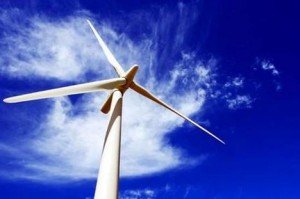The Intergovernmental Panel on Climate Change (IPCC) has released a Special Report on Renewable Energy Sources.
Dominion Post reporter Kiran Chug covered the story and spoke to Massey University Professor Ralph Sims, an expert who contributed to the report.
(The report was also covered in the New Zealand Herald, and a full IPCC press release is available).
NZ praised for energy policy but warned about ‘challenges’
CLOSE to 80 per cent of the world’s energy supply could be met by renewables within 40 years if the right policies are put in place, a new report shows.
In its first report since the ”Climategate” debacle over leaked emails, the Intergovernmental Panel on Climate Change has turned its attention to the potential of renewable energy.
Among the report’s 120 authors is Massey University sustainable energy professor Ralph Sims, leading a chapter on how renewable energy could be integrated into existing infrastructure.
He said the key message of the report was that while, globally, renewables accounted for 13 per cent of energy sources, the figure was growing and would continue to grow.
However, cost, awareness and policy leadership were all barriers. New Zealand was still not fulfilling its potential for renewable energy use, and other than the Emissions Trading Scheme there was little to encourage growth in the area. New Zealand had got to where it was because of its good resources, not because of policy, he said.
In March, the International Energy Agency issued a report into New Zealand’s energy policies, saying they were on the right track, with 74 per cent of electricity production from renewable sources
However, the agency said ”policy challenges” remained. It called on the Government to set realistic goals for energy efficiency improvements and to increase investment in electricity infrastructure. ”Over the long term, New Zealand must continue to enhance its policies in order to ensure a secure, sustainable and decarbonised future, ” IEA executive director Nobuo Tanaka said.
Associate Energy and Resources Minister Hekia Parata said the report affirmed New Zealand’s position. ”Renewables and energy efficiency are a big part of our energy picture. We are a world leader in geothermal energy. Our rivers and lakes have long provided hydroelectricity and our wind resources are world-class.”
She said the Government was focused on renewables, the exploration of natural resources, energy efficiency and the pricing of carbon while managing environmental responsibilities and economic opportunities. The Government has a target of 90 per cent of electricity generation to be from renewable sources by 2025.
However, Professor Sims said New Zealand was placing too much of its future focus on petroleum exploration and coal.
”New Zealand is on the cusp of going one way or another. Much of the world – Germany, China – is going boots and all for renewables. New Zealand could be leading. Instead, it’s digging up more coal.”